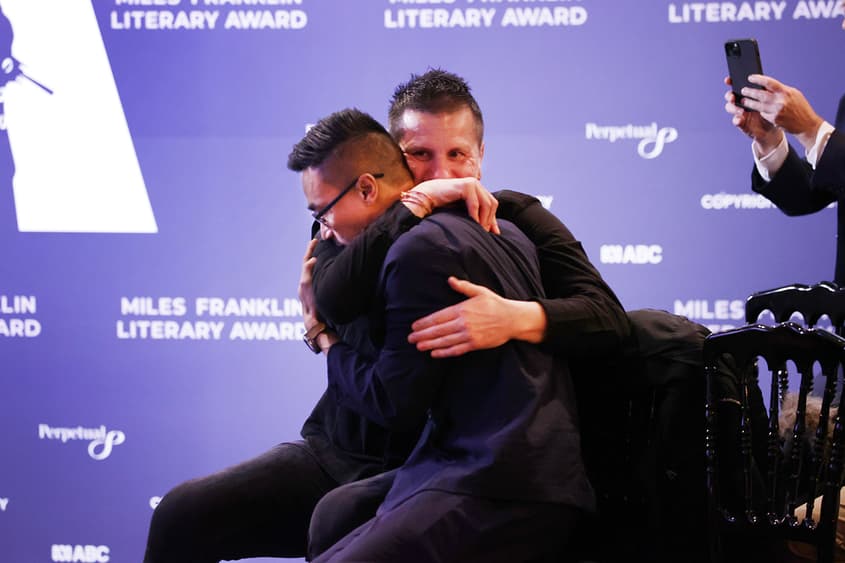This year, the winners of The Block took home $520,000 in tax-free prize money. Meanwhile, the winner of the prestigious Miles Franklin Award paid at least a quarter of the $60,000 prize to the tax office. How did we get here and what can be done about it?
Fri 31 Oct 2025 00.00

Photo: The winner of the 2025 Miles Franklin Literary Award, Siang Lu for Ghost Cities, in Sydney, Thursday, July 24, 2025. (Image/Jane Dempster)
The Australian Taxation Office (ATO) views prizes, such as cash, holidays, or cars, won in competitions or lotteries as personal windfalls rather than professional income.
However, the ATO taxes prizes and grants creatives such as artists and writers win, because the money is considered the product of their professional arts business, which makes it income in their eyes.
So, if you win the lottery or Who Wants to Be a Millionaire or The Block, your earnings are tax-free. But if you win one of the nation’s most prestigious arts prizes, like the Archibald Prize for the best portrait, or the Stella Prize for the best book by a woman or non-binary author, or receive grant funding to develop your next project, you pay income tax.
The Prime Minister’s Literary Award is the only exception. Thanks to a line in the legislation, they are exempt from income tax. The federal government has already accepted tax-free prizes are a good idea, so why not extend it to all art forms and all prizes?
For industries where incomes are already critically low, often well below the median income, taxing these prizes has serious repercussions.
A 2025 survey by the National Association for Visual Artists (NAVA) found that 55% of artists said paying so much tax seriously dented the benefits of winning the prize. Some artists even reported losing half of their prize money to tax. Bundjalung author Melissa Lucashenko, who won the 2019 Miles Franklin Prize, said she paid $15,000 in tax. Meanwhile the winner of The Block took home prize money five times that of the Miles Franklin and paid no tax.
Data from Creative Australia shows the average author income is $18,200. This is well below the poverty line, making every dollar of prize money vital for easing hardship. This financial strain is evident: two-fifths of authors report relying on a second job or on their partner’s income to make ends meet.
Beyond the immediate financial toll, taxing arts prizes slows down creativity. When artists are forced to take on second or third jobs to support themselves, they end up with significantly less time dedicated to their craft. In fact, many writers and creatives spend only about half of their time working on original projects. This time poverty can lead to fewer new ideas, ultimately resulting in fewer unique Australian stories and cultural works.
The Australia Institute and groups such as NAVA and the Australian Society of Authors have long called for the removal of taxes on arts prizes. This modest investment in culture would support Australia’s leading artists, enable them to focus more on their craft and boost Australian arts.